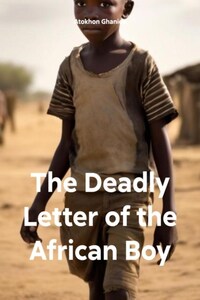The Deadly Letter of the African Boy

"The Deadly Letter of the African Boy" is a profound and touching story that reveals the stark contrasts between two worlds: poverty and wealth, the struggle for survival and luxury. At the heart of the plot is N'golo, a young boy from a poor African family, who fights daily against hunger and hardships to support his siblings and sick mother. In his world, there are no privileges or abundance, only hard work and desperate dreams of a better life.
On the other side is a billionaire from Europe, consumed by his riches and carefree lifestyle. He is oblivious to the sufferings of others until he receives an unexpected letter from N'golo asking for help. However, instead of empathy, the response to the child's letter is mocking laughter, leading to unforeseen and fateful consequences.
This story serves as a reminder of how human greed and indifference can turn into tragedy.
Книга издана в 2024 году.








